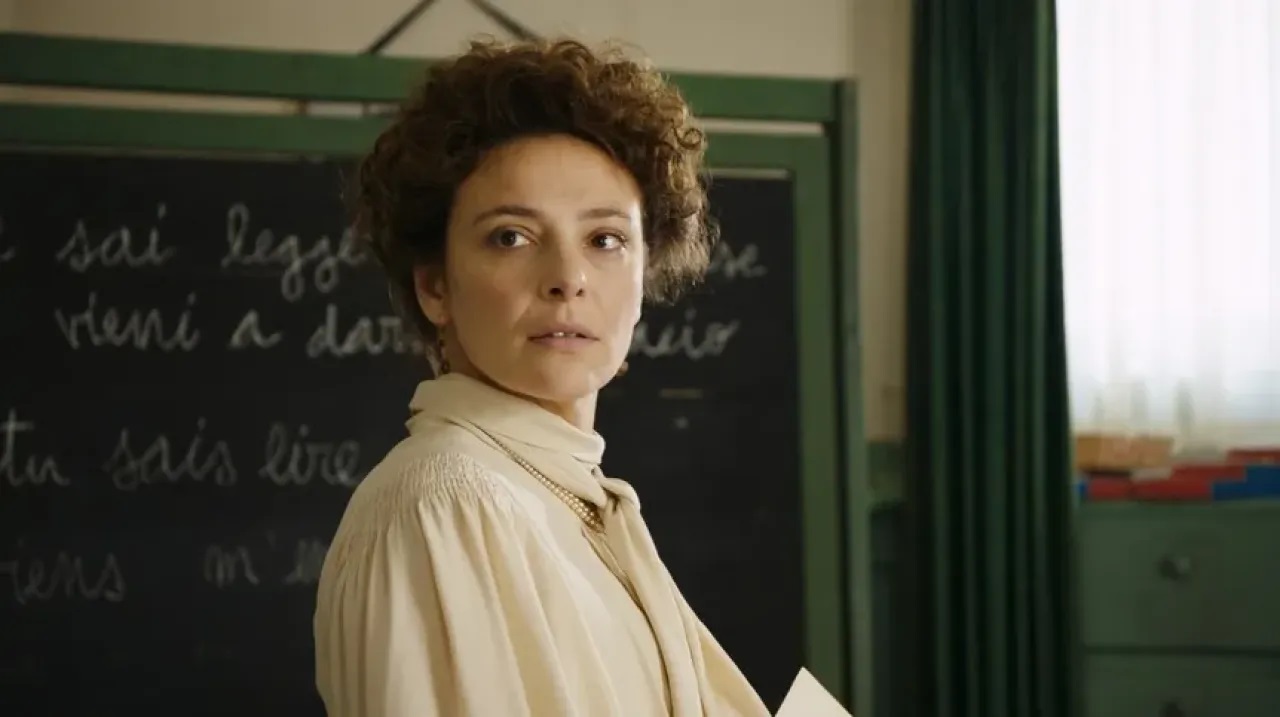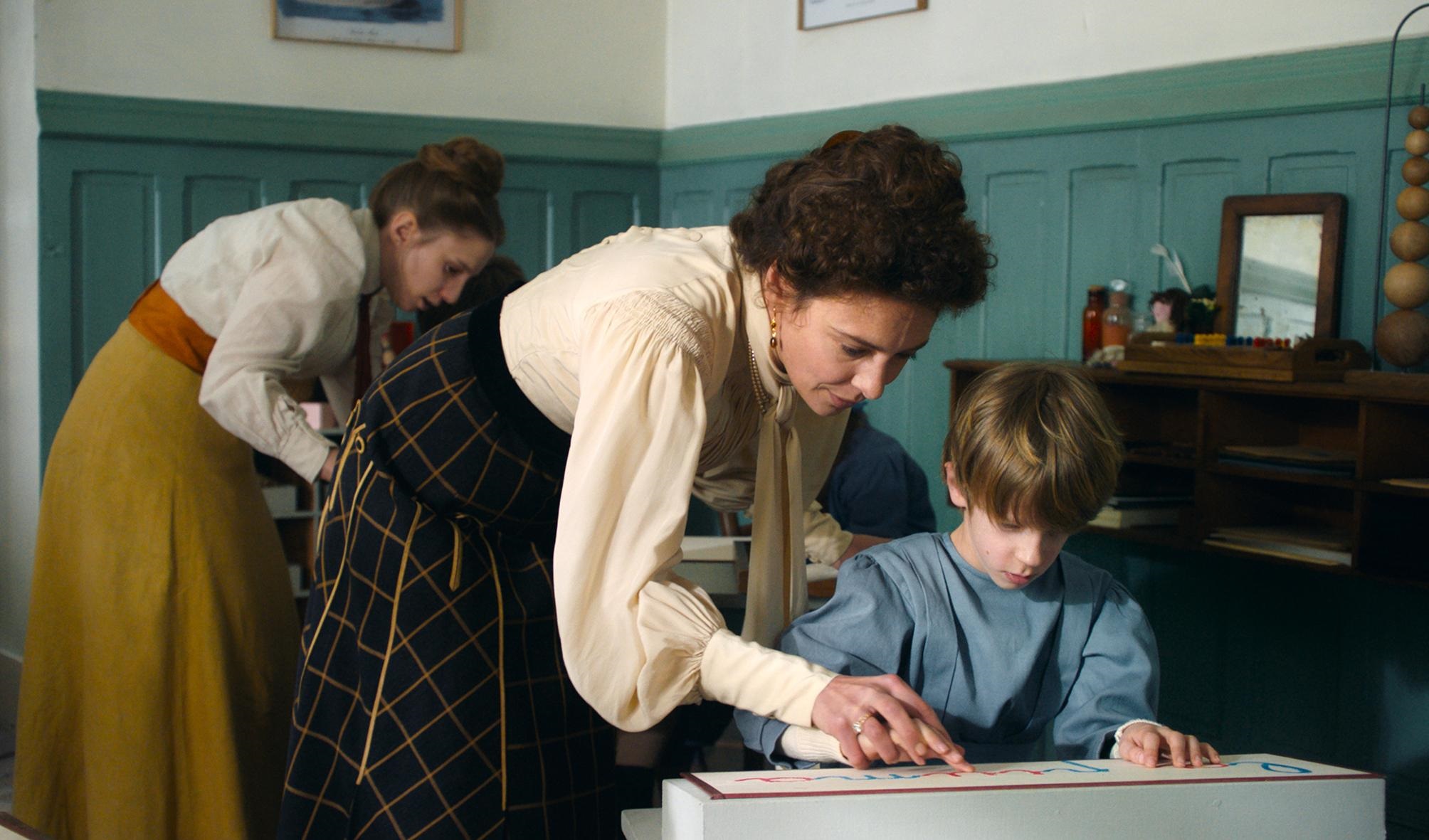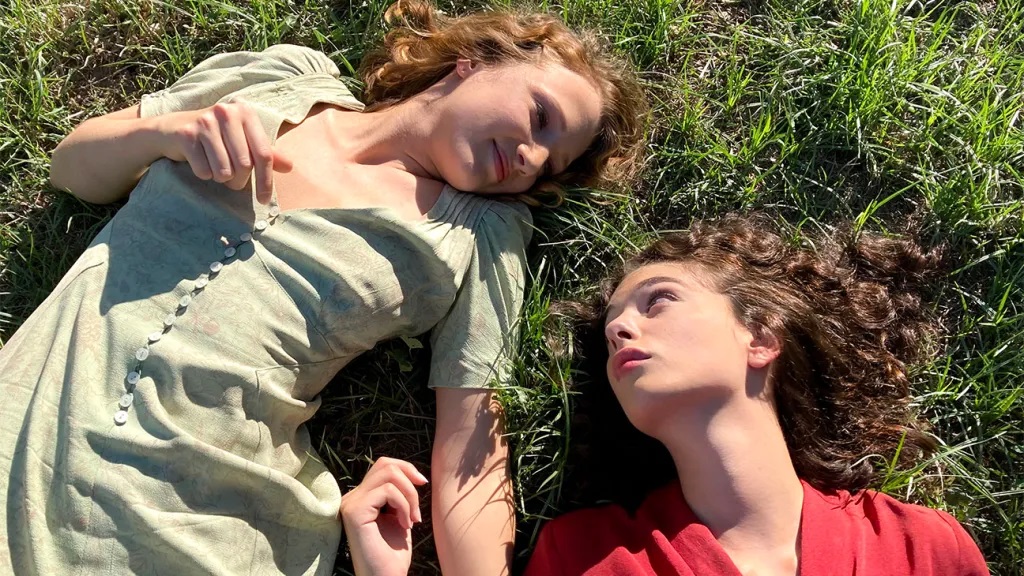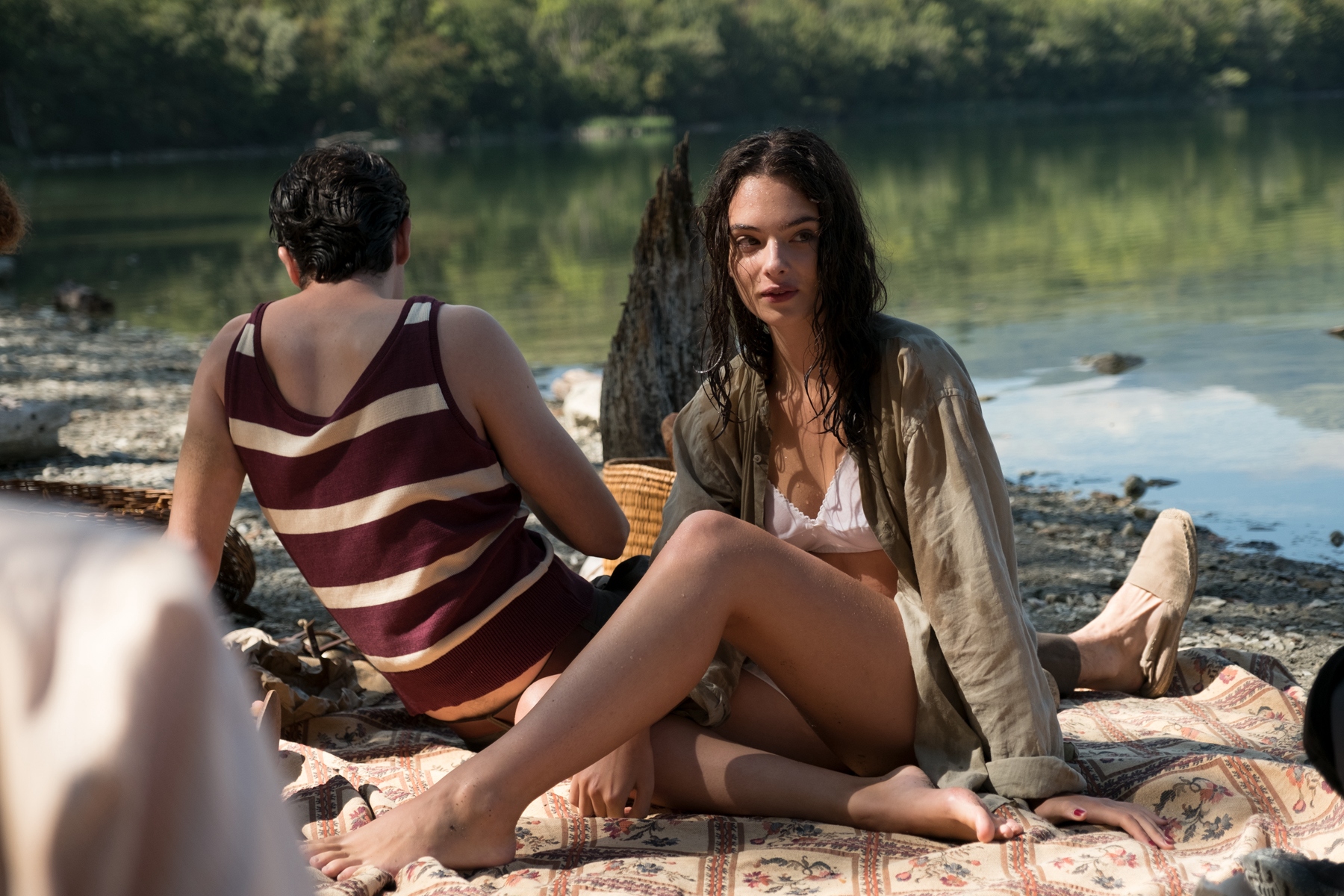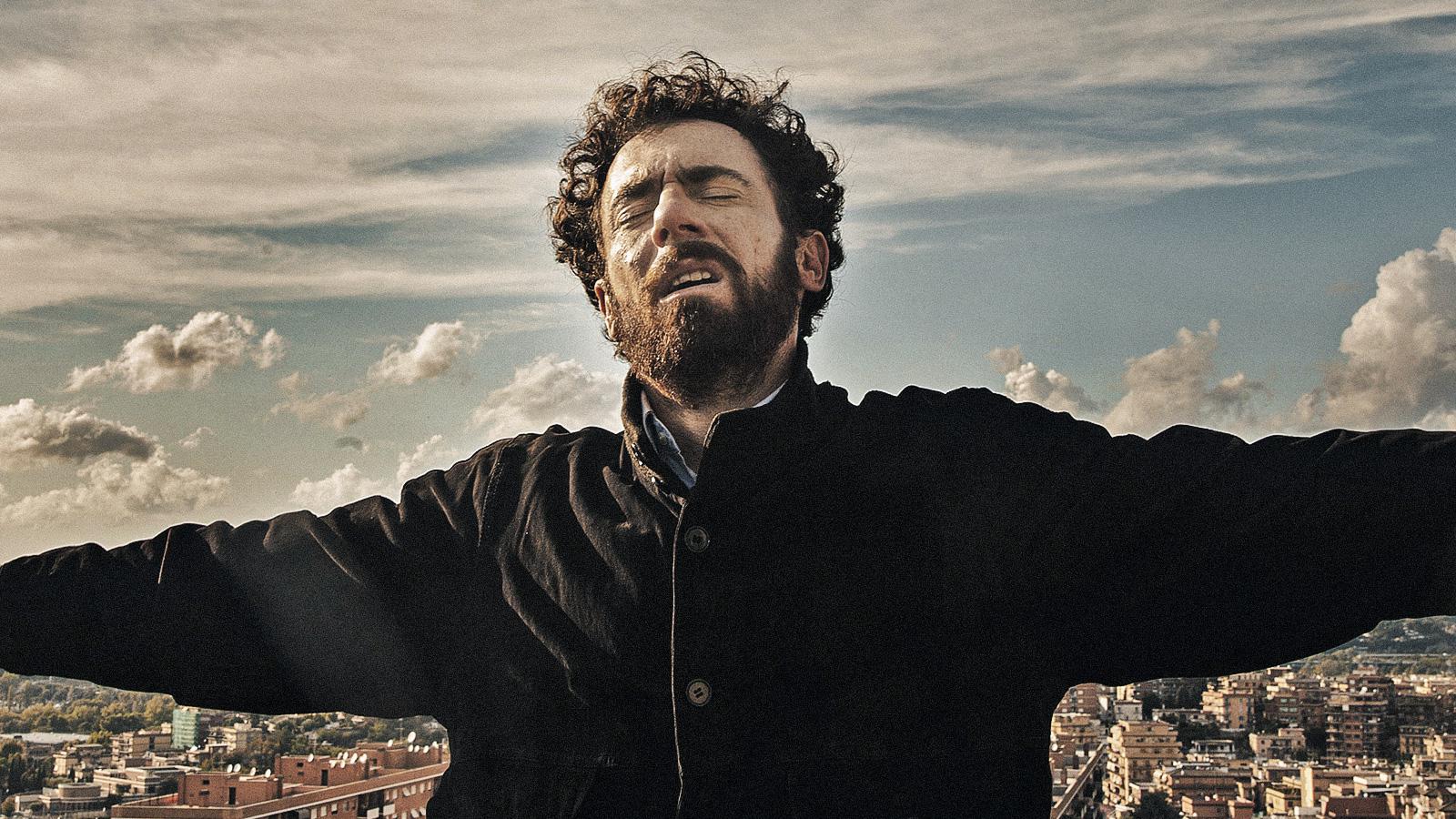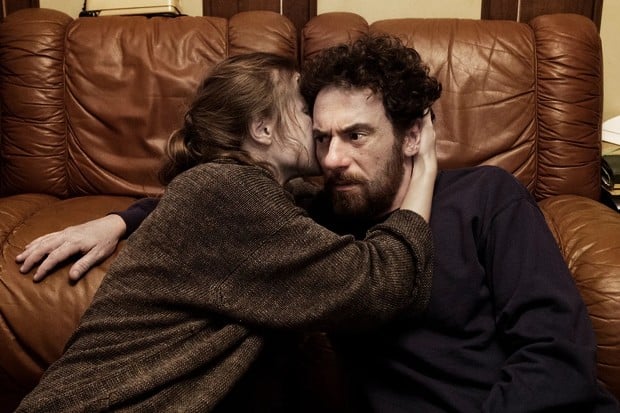Let me set the scene for you.
Italy, post WWII. We are being introduced to what one assumes to be another black-and-white, a run-of-the-mill black-and-white post-war movie to doze off to on a rainy Sunday afternoon, panning into a bedroom with a husband and wife waking up to the promise of a new day. “Good morning, Ivano.” And then…SLAP!
Not metaphorically! A big old slap across the face from a husband, Ivano, to his wife, Delia, and whoa! Now we are off!
We’ve just witnessed something horrible; a man slaps a woman across the face, but the reaction it warrants is to burst out laughing. An embarrassed laugh, an unsure laugh, a shocked laugh. The comical, slapstick timing is so perfectly timed and pitched, as the whole film will pan out. Hooray! This film suddenly got interesting.
Directed and starring Paola Cortellesi, a well-respected and much loved Italian actress and comedienne as the main protagonist of Delia along with a perfectly pitched ensemble cast, including Valerio Mastandrea as the horrible husband, and fantastic young actors as their gorgeous teenage daughter and young sons, and her best friend and ally, Marissa.
One almost forgets this is Italy in the second half of the 1940’s. Delia cannot go to a refuge with her children or book an uber out of there.
Delia remains, constantly insulted and belittled, working multiple odd jobs to contribute to the household income, raising the children, running the household, looking after her handsy father-in-law. And then, a mysterious letter arrives, intriguingly addressed only to Delia. What is written in this letter? Who sent the letter? Such a mysterious piece of paper which Delia lets herself smile about and is excited enough about that feels the urgent need to hide away from Ivano.
Then, more good news. Her teenage daughter has the promise of marriage to a well-off son of a local café owner. Exciting new that will make Ivano happy. So happy to shout out to the other tenants in their building from their barely furnished ground floor flat that his daughter will be marrying into a respectable household. Are things finally looking up?
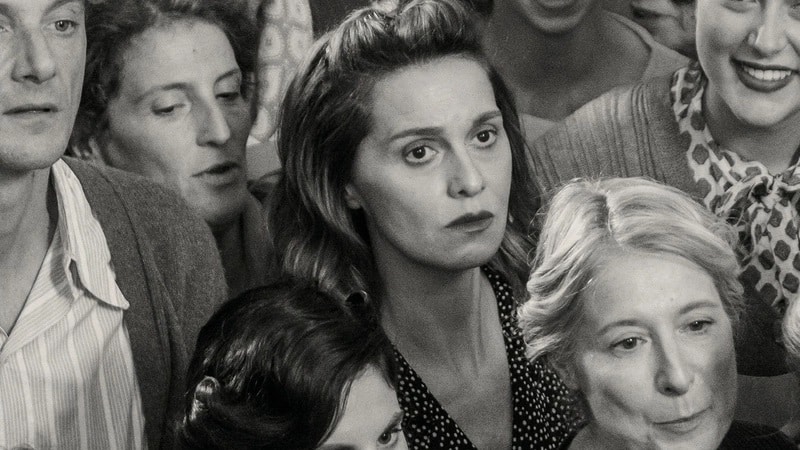
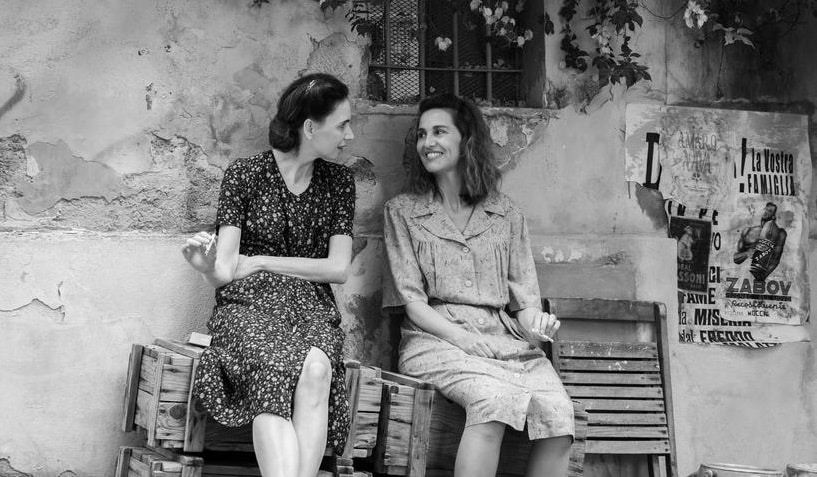
Not to be. We soon come to realise through Delia’s eyes that sadly, old habits are often inherited from generation to generation. Is this young man really a new beginning for the younger generation, or just a younger version of the repressive and threatening husband Delia chose instead of her old flame at the local mechanics who is a gentleman and lets her eat chocolate with him that an American soldier gifted to Delia for her kindness to him.
There’s still tomorrow is a story of repression, domesticity, abuse, survival, love, adversity, and finally, female empowerment. Delicious moments are peppered throughout, when you start to look away as Ivano raises his hand to his Delia, assuming the scene is going one way and then, out of nowehere, a perfectly choreagraphed dance sequence is playing out, like a memory being told that is just so painful that the storyteller is making it more pallatable for the audience. The echoes of West Side Story. And my goodnes, it works a treat.
It is easy to understand how There’s Still Tomorrow was the highest grossing film in Italy in 2023, outperforming Barbie and Oppenheimer.
This is the story of Italian women coming together and having the chance to finally stand up and be counted.
I have already reccommended to all my frfiends in Sydney to go to the Palace Cinma in Broadway tonight at 8.30pm and see for themselves this amazing piece of Italian film.
POTERE DELLE RAGAZZE! Tranlation…GIRL POWER!
To book tickets to this or other films click https://italianfilmfestival.com.au/

